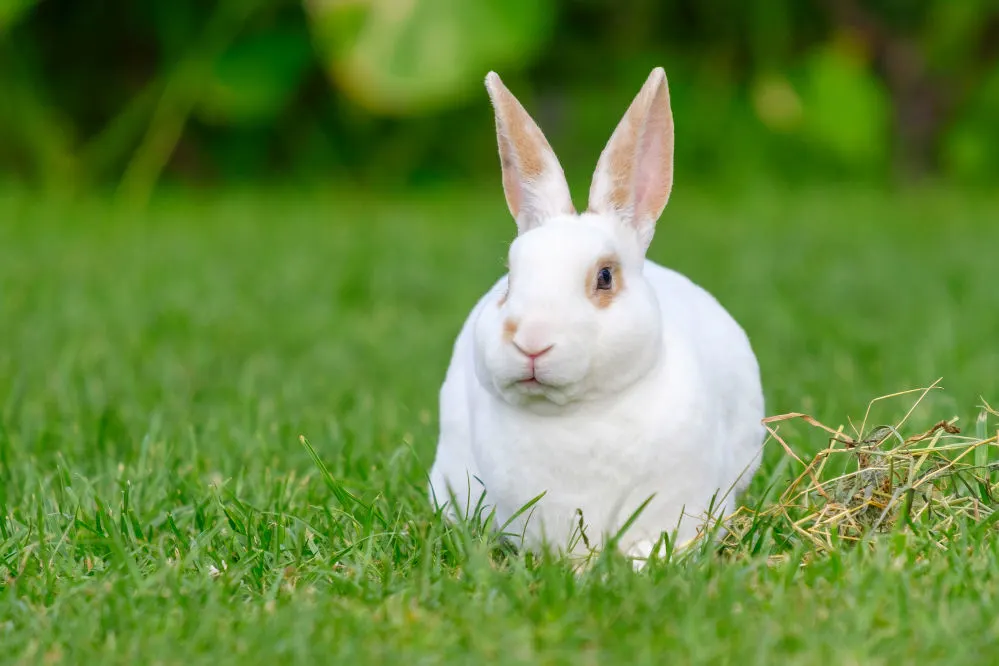Rabbits are majestic little creatures as quiet as the hush of evening. And they’re pretty private, too, so much so that they instinctively hide any illnesses or injuries they may have. It’s in their nature — one can call it a protective mechanism.
This is when you must be an observant pet rabbit owner to ensure your bun-bun’s health and safety. Knowing the difference between normal and abnormally rapid breathing could save your indoor rabbit’s life. However, rapid breathing doesn’t always mean your bunny has difficulty breathing; they could just be hot and exhausted.
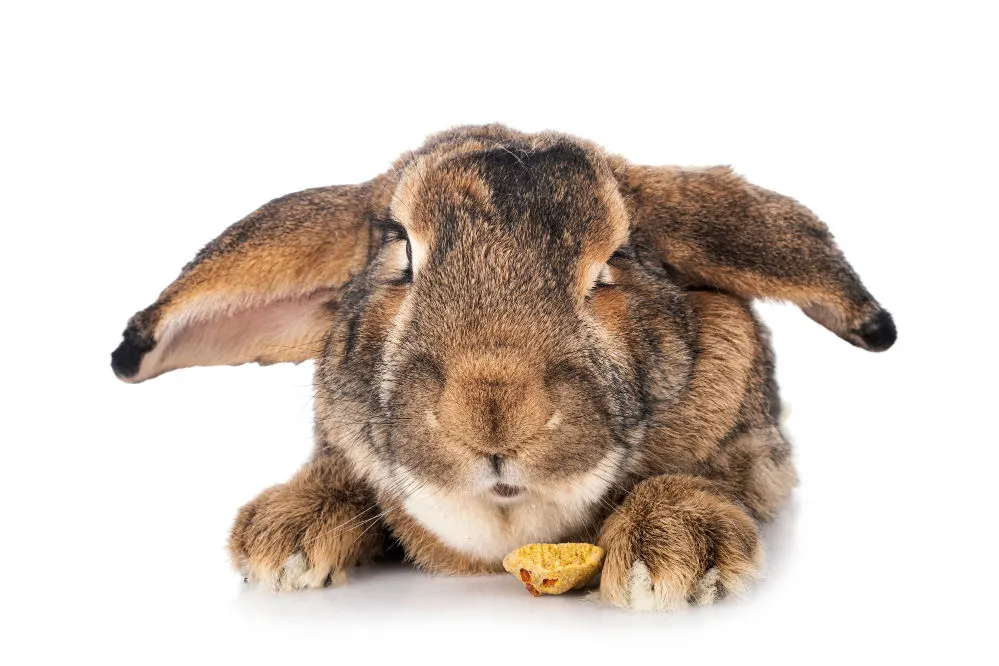
This is why this guide aims to cover everything you need to know about why your rabbit is breathing fast.
Let’s not waste another breath and dive right in.
Why is my rabbit breathing fast?
You might wonder, “Is it normal for a bunny to breathe so fast?” Well, yes and no. It depends on the situation — a medical issue or something less concerning.
After all, rabbits breathe much faster than humans. Still, learning the difference between abnormal and normal rapid breathing is essential. This can help you suss out any underlying issue as it could be a sign of illness.
PS. You might also want to know the color of a rabbit’s pee, as this can reveal underlying health issues too.
What is normal breathing for rabbits?
A healthy, ordinary rabbit usually takes 30-60 breaths every minute. This means they are calm and can breathe with ease. Normal breathing patterns should show no labored breathing, and you would barely hear it.
Along with silent breathing, clear eyes and a clean nose means that your furry friend inhales and exhales normally.
Symptoms associated with rapid breathing to look out for
Usually, when a rabbit is sick, it’ll often show up in various, subtle ways. Rapid, labored breathing could be a sign that something is wrong, along with many more.
Now, let’s look at any common symptoms if you are concerned that your rabbit’s fast breathing may be abnormal and likely a result of health issues.
- Wheezing or sniffling
- Sneezing
- Labored/heavy breathing
- Loss of appetite
- Teary eyes
- Nasal discharge
- Quiet and withdrawn demeanor
You should contact your vet immediately if you notice any of these symptoms. A runny nose, teary eyes, sneezing, or wheezing could indicate an issue with your pet’s lungs or airways.
There are more possible causes to be aware of, which will be highlighted further on, so keep reading.
Why do rabbits shake and breathe heavily?
Sometimes you’ll notice your rabbit shaking and breathing fast and loudly. This type of behavior is usually associated with pain. Since rabbits hide their pain and disease, bringing this behavior to your veterinarian’s attention would be best.
Medical conditions associated with fast breathing in rabbits
You know the warning signs mentioned above could be related to numerous health issues. So now it’s time to look at some common medical reasons associated with fast breathing.
1. Bacterial infections
Pasteurella and Bordetella are typical bacterial lung infections that rabbits may get. This will undoubtedly alter the regular respiration rate of your pet. Some bacterial lung infection symptoms include lethargy, coughing, sneezing, reduced appetite, ocular and nasal discharge, and inner or middle ear infections.
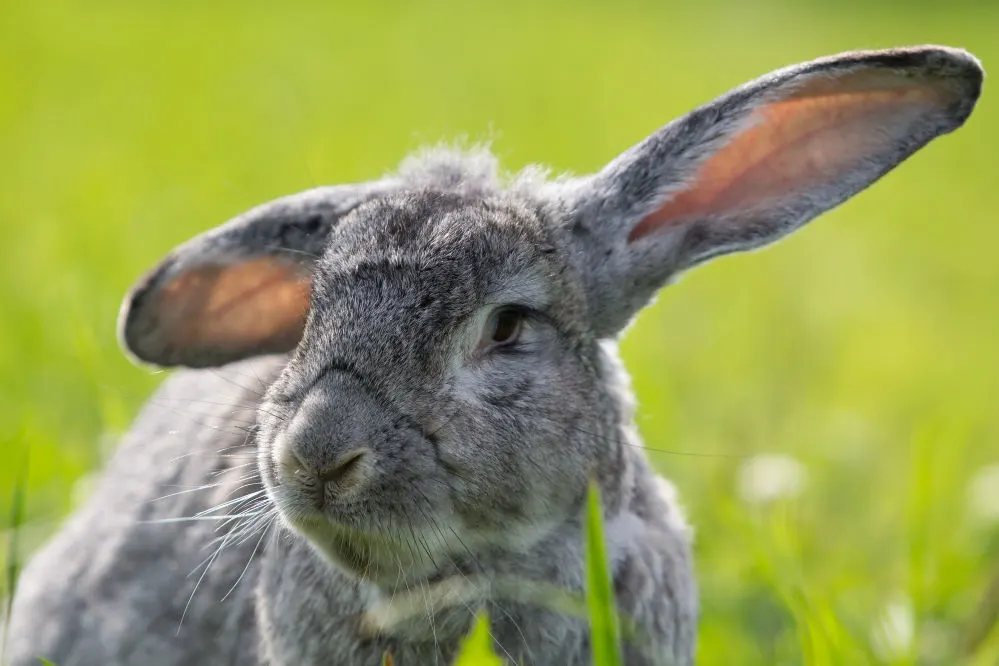
2. Respiratory infections
Any respiratory issues interfering with the airways can affect a rabbit’s breathing rate. And most respiratory illnesses are a result of infections. The Pasteurella bacteria cause the most common type of upper respiratory infections in rabbits.
Some noticeable symptoms of a respiratory infection include weepy eyes, nasal discharge, wheezing, loud breathing, snuffles, low energy, loss of appetite, and fast breathing.
3. Viral infections
Bunnies are not immune to viral infection, and some of these can be fatal, affecting your bun’s heart rate and breathing. The most severe and standard types are Rabbit Haemorrhagic Disease Virus (RHVD) and Myxomatosis.
4. Allergies
Just like us, some rabbits have very sensitive sinuses. Faster breathing and a blocked nose may arise when in contact with dust, wood shavings, chemicals in cleaning products, perfumes, and air fresheners. Even secondhand smoke could be toxic to your pet bunny’s sensitive respiratory tract, making them breathe faster.
5. Tumors
Sadly, your adorable fuzzy friend could have developed either lung, nose, or thymus gland tumors. The tumors affect the tissue of a rabbit’s respiratory system leading to breathing problems. While cancer is more prevalent among older rabbits, young rabbits are also susceptible.
Some signs of tumors in rabbits include lack of energy, grooming and playfulness, weight loss, anorexia, and equilibrium issues.
6. Heart disease
Progressive heart problems may affect your rabbit’s breathing pace, speeding it up significantly. Afterward, your pet might develop a knack for fainting.
When assessing for heart diseases in rabbits, your vet will look out for tachycardia (a heart rate over 180 beats per minute) and tachypnea (abnormally rapid breathing).
7. Plant poisoning
Any poisonous plants that your bunny may have eaten by mistake could make them breathe faster to compensate for oxygen deprivation. This includes poison ivy, nightshade, mistletoe, buttercups, and primrose.
Non-health conditions associated with fast breathing in rabbits
It’s not always a cause for concern, so let’s look at regular things that impact a rabbit’s nose breathing.
8. Your rabbit is getting hot
A high body temperature can impact your bunny’s breathing. Breathing quicker will help them regulate their temperatures under hot conditions, especially heat strokes.
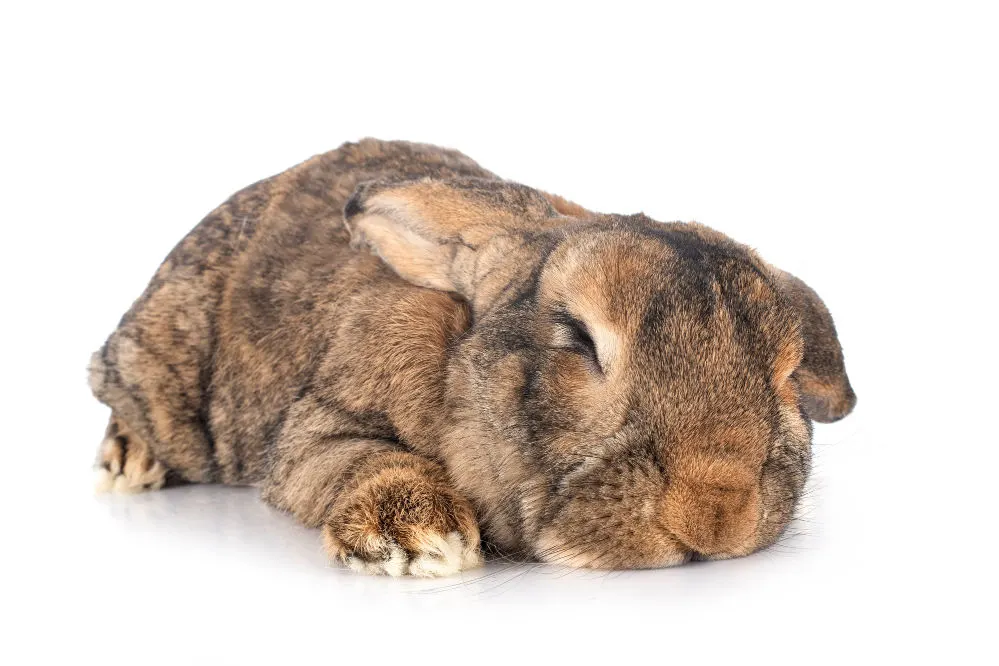
9. Your rabbit is scared
Fear is one of the most common causes that speeds up a rabbit’s respiratory rate. As bunnies are prey animals, nearby predators, loud, shocking sounds, or thunder will have them breathing fast.
10. They have something stuck in their nose or throat
Small foreign objects may enter a bunny’s nose or throat and block their airways. This includes items like bedding, hay, grass, leaves, etc.
11. Your rabbit is tired after playing
This one needs no explanation. Like children, bunnies might take a while to slow down their breathing after running, jumping, and playing around. While this is cute, remember that it should only be momentary.
When to contact your vet?
When is the right time to seek medical attention? You need to contact your vet when you notice any breathing problems not caused by exhaustion. This ensures your bun-bun receives the proper treatment in time.
Otherwise, if you leave this untreated or wait for things to improve, your fuzz ball might end up in a worse condition. Ultimately, doing so could even be fatal. Once you’ve scheduled a routine check-up, the vet can rule out any medical conditions, such as heart failure and respiratory problems.
How to calm a rabbit’s breathing pattern
The first thing you need to do is to stop stressing. Remaining calm is essential, as a stressful environment may worsen your bunny’s condition.
Your local veterinarian will give you proper advice on how to look after a bunny with breathing issues. But here are some things you can do for the time being:
- Provide a clean and quiet environment, especially after veterinary care.
- Keep your rabbit healthy with fresh leafy veggies and plenty of water.
- Use lavender as a natural herbal remedy to help destress your bun-bun. Give them one tablespoon for every 6.5 lbs (2.94 kg) of your rabbit’s weight.
- Bunnies are obligate nasal breathers, so clogged noses are common, but you can help clear up their sinuses by gently suctioning their nose with a pediatric ear syringe.
Why is my rabbit breathing so fast | Wrapped Up
There you have it. Hopefully, now you can rest assured that you’ll understand this subject well enough to be an even better bunny parent. You’ll know how to discern between normal and abnormal breathing and how to calm down your rabbit’s rapid breathing.
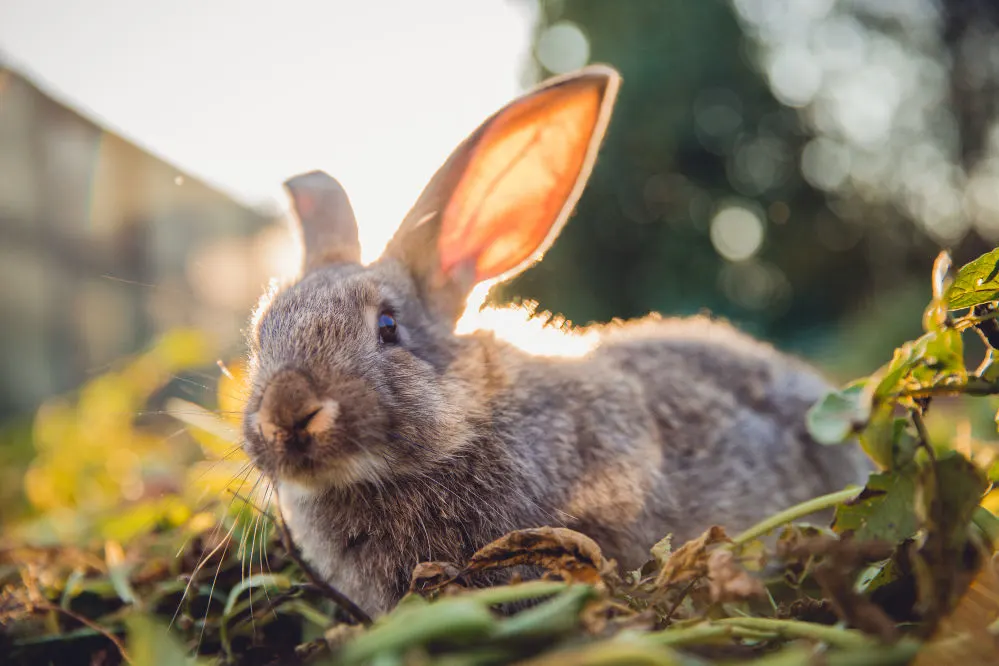
Most pet owners will tell you it’s much easier to pick up when a dog or cat is sick than bunnies. While their secretive nature might make you worried, know that there are always some signs and symptoms you can look out for.
The biggest takeaway: It’s a good idea to book an emergency visit with your nearest veterinarian when you notice an abnormal breathing pattern. You’ve got this.
Steph Dyson is a travel journalist by trade but a lover of all small pets. She’s been a pet mum to everything from gerbils to guinea pigs, rabbits to hamsters, and fish to dogs of all shapes and sizes. She wants to share her years of experience with small pets and make Small Pet Guides the go-to website for pet owners seeking information and care advice.

